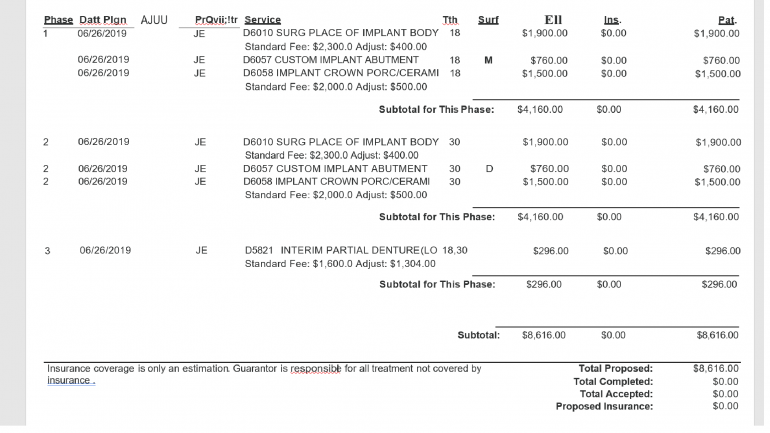
Dental Code D6081: Scaling and debridement in the presence of inflammation or mucositis of a single implant, including cleaning of the implant surfaces, without flap entry and closure
Dental Code D6081 refers to a specific dental procedure known as scaling and debridement in the presence of inflammation or mucositis of a single implant, including cleaning of the implant surfaces, without flap entry and closure. This code is used to bill for the treatment of peri-implant inflammation or mucositis, which are conditions that affect the soft tissues surrounding dental implants.
Dental Code D6081: Meaning and Steps
Dental Code D6081 signifies a non-surgical treatment approach for managing inflammation or mucositis around a single dental implant. It involves the thorough cleaning of the implant surfaces to remove bacterial plaque, calculus, and other debris that contribute to the inflammatory process. This procedure typically does not require an incision or suturing.
Evaluation and Diagnosis
Before initiating the treatment, a thorough evaluation is performed by the dental professional. The dentist will examine the implant site, assess the severity of inflammation or mucositis, and determine the appropriate treatment plan. Diagnostic tools such as X-rays or periodontal probing may be used to aid in the evaluation.
Local Anesthesia
To ensure patient comfort, a local anesthetic may be administered to numb the area surrounding the implant. This helps minimize any potential discomfort during the scaling and debridement procedure.
Scaling and Debridement
During the scaling and debridement procedure, the dental professional skillfully removes plaque, calculus, and bacterial biofilm from the surfaces of the dental implant. The process begins with supra-gingival cleaning, where the visible deposits of plaque and calculus are carefully scraped away using hand scalers or ultrasonic instruments. The dental professional pays close attention to ensuring complete removal of these deposits, as they can harbor bacteria and contribute to inflammation.
Subsequently, sub-gingival cleaning is performed to address any deposits that have accumulated below the gumline. This step is crucial as it targets the hard-to-reach areas where bacteria thrive and cause inflammation. Specialized instruments, such as curettes or ultrasonic tips, are used to access and meticulously remove the sub-gingival deposits, promoting optimal healing and reducing the risk of further complications.
Irrigation and Antimicrobial Treatment
After scaling and debridement, an important step in the treatment process involves irrigation and antimicrobial treatment. An antimicrobial agent or an irrigation solution may be applied to the implant surfaces to further disinfect the area and reduce the bacterial load. This helps eliminate any residual bacteria that may have remained after scaling and debridement.
The antimicrobial agent used can vary and may include solutions such as chlorhexidine or hydrogen peroxide. These agents have antibacterial properties and can help suppress the growth of bacteria, promoting a healthier environment around the implant. The dental professional carefully applies the solution to the implant surfaces, ensuring thorough coverage and contact time for optimal effectiveness.
Irrigation may also be performed using a gentle stream of water or an antimicrobial rinse to flush out any debris or bacteria that may have been dislodged during the scaling and debridement process. This additional step aids in the removal of any remaining contaminants and supports the disinfection of the implant surfaces.
By incorporating irrigation and antimicrobial treatment into the procedure, the dental professional aims to enhance the effectiveness of the scaling and debridement process, reduce bacterial colonization, and facilitate the healing of the peri-implant tissues.
Overall, scaling and debridement, followed by irrigation and antimicrobial treatment, form an integral part of the non-surgical management of inflammation or mucositis around dental implants. These meticulous steps help create a favorable environment for healing and contribute to the long-term success of the implant.
Oral Hygiene Instructions
Proper oral hygiene practices are crucial for maintaining the health of dental implants. The dental professional will provide detailed instructions on how to clean around the implant, including the use of specific tools and techniques. Regular brushing, flossing, and antimicrobial rinses may be recommended to support long-term success.
Follow-Up and Maintenance
Following the scaling and debridement procedure, periodic follow-up visits will be scheduled to monitor the healing process and assess the implant's stability. Maintenance visits, including professional cleanings, may be recommended at regular intervals to prevent recurrence of inflammation or mucositis.
Summary of D6081
Dental Code D6081 represents the scaling and debridement procedure performed in the presence of inflammation or mucositis around a single dental implant. This non-surgical treatment involves the thorough cleaning of implant surfaces to eliminate plaque, calculus, and bacterial biofilm. By addressing the underlying causes of inflammation, this procedure aims to restore a healthy peri-implant environment. Proper oral hygiene practices and regular follow-up visits are essential for maintaining the long-term success of the implant.
Please note that prices for dental procedures can vary depending on various factors, including geographical location and individual dental practices. It is recommended to consult with your dentist or dental insurance provider to obtain accurate pricing information. Additionally, you can compare prices and seek cost-saving options by using our Dr. BestPrice service.
